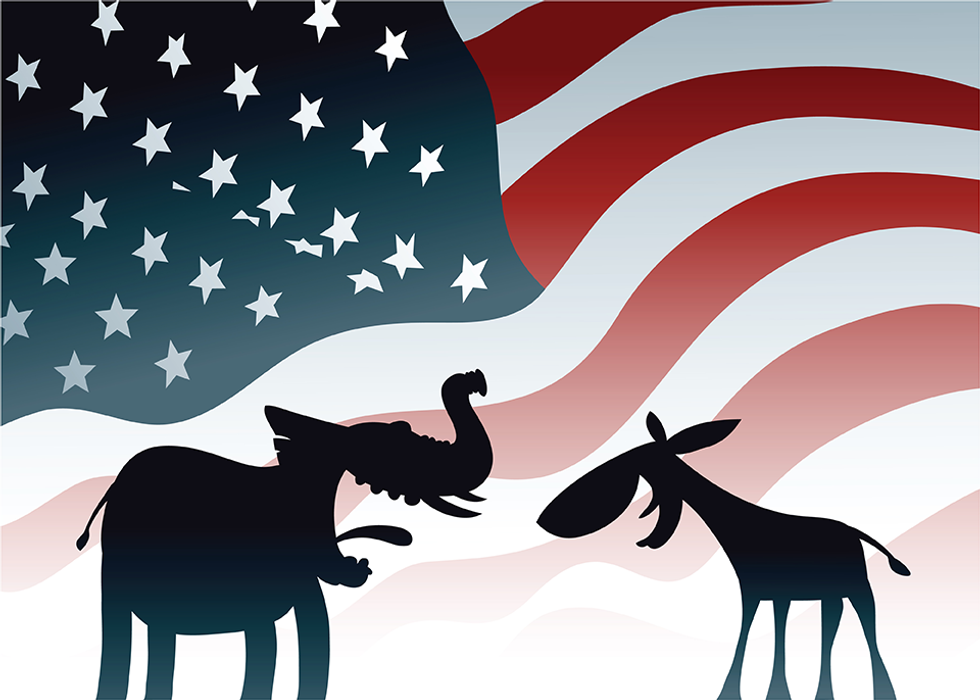It is irrefutable that in the United States 2016 Presidential Election, America was faced with a tough choice, which was to vote for either Donald Trump or Hillary Clinton. They were probably the most unpopular candidates to become the Republican and Democratic nominees in the history of the United States. For some, it was a clear-cut choice of who to vote for from the beginning. For others, it was a difficult decision, due to the controversy and scandals that surrounded both candidates. This brings another question that most major media outlets have ignored (due to inherent bias). Should the United States have more than two major political parties?
Although there were other candidates that ran for president, most well-known being Gary Johnson (Libertarian) and Jill Stein (Green Party), neither had any realistic chance of winning the election. I am not saying that these two third-party candidates were outstanding, however. After the 2016 Presidential Election, we could very well see a rise of third parties. Since many Americans were verbal in identifying they were forced to vote for "the less of two evils," having one or two more candidates from a major party could help them not have to pick and choose. More American citizens than ever are declaring themselves as Independent, rather than identifying as Republican or Democrat, with 43% identifying as an Independent in a recent Gallup poll. Individuals do not want to identify as either Republican or Democrat anymore due to the corruptness of members from both parties.
The problem is that third-party candidates are viewed by many as a "joke," being on the ballot to take away votes from the two major candidates. In reality, this is true, since third-party candidates rarely gain electoral votes. The public is generally uninformed about where Libertarians and those in the Green Party stand on economic and social issues. Many were also unaware that candidates who were part of the Constitution, Justice, and Independent American Parties ran for president, as well as others. Third-party candidates aren't even included in debates with Republicans and Democrats. Instead, they have their own debates with other third-party candidates which rarely draw viewers, and therefore potential voters, from listening in on potential candidates.
There are obviously, benefits of America's current two-party system. The two-party system promotes centrism, as it is easier to come to an agreement than if there were more major parties. There is no question that third parties could divide the nation even more than it already is currently. Shortly after Obama was elected in 2008, the Tea Party emerged, which was a movement within the Republican Party with who compared themselves to seeking the same kind of revolution those did during the Boston Tea Party. Their platform was to decrease the national debt and have major tax cuts. They caused conflicts in the House of Representatives when passing bills related to healthcare, as they did not believe in universal healthcare. Thus, those who believe in political extremism and belong to a party that might not survive long-term can cause more delay and disruption in the government.
The growth of third parties in America will clearly not happen overnight. Since past American presidents belonged to parties other than the Republican and Democratic parties (Federalist, anti-Federalist, Whig, and so on), we could very well see an increase in opposition parties. New parties have always had the ability to form, however; these old parties gradually morphed and evolved into current ones. Considering the Republican and Democratic parties tend to unconsciously divide individuals based on race, religion, and socioeconomic status, the rise of other parties could be beneficial in eliminating this divide.
















